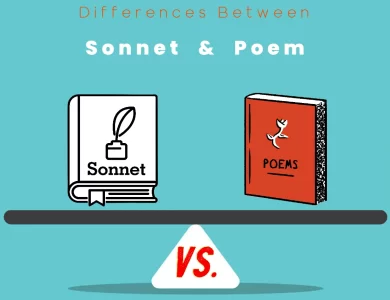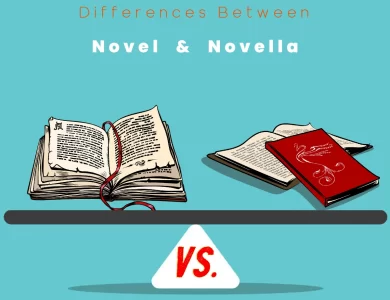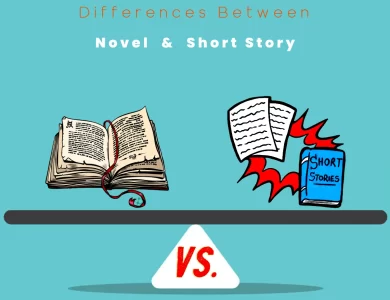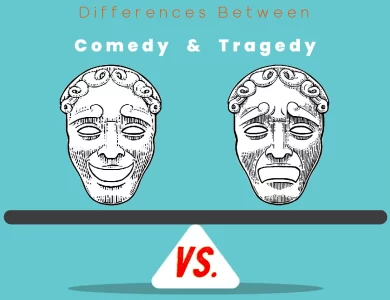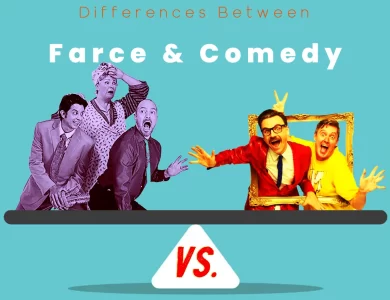Literature Language
-

Short Story vs Essay
In the captivating world of literature, the choice between crafting an essay and weaving a short story is akin to selecting the perfect brushstroke for your masterpiece. Understanding the distinctions between these two forms of expression is essential, as it can greatly influence the impact and message you wish to convey. So, let's embark on a literary journey to explore the core differences that set essays and short stories apart. Essays, the stalwarts of non-fiction, stand as the bastions of factual information, argumentation, and education. They serve the purpose of informing, persuading, or conveying an argument in a structured and organized manner. Essays come in various types, from research papers that delve into complex topics to reflective essays that offer personal insights. Their structure is logical, typically featuring an introduction to engage the reader, followed by well-organized body paragraphs, and a conclusive statement that leaves a lasting impression. Essays are known for their clarity, formality, and adherence to factual accuracy. On the other side of the literary spectrum, we have short stories, the magicians of fiction. These narrative gems are designed to entertain, provoke emotions, and transport readers into alternate worlds. Short stories are characterized by their creative freedom, allowing authors to experiment with structure, character development, and plot. Within the compact confines of a short story, characters come to life, settings breathe, and plots unfold with a precision that engages and captivates. These stories are flexible in style, ranging from the formal to the informal, and they employ various literary devices to enhance the narrative's impact. As you journey through this exploration of essays and short stories, you'll gain a deeper understanding of their unique characteristics. By the end of this literary adventure, you'll be well-equipped to choose the perfect medium for your creative expression, whether it's the precision…
-

Poem vs Sonnet
Poetry, a realm where emotions flow, thoughts dance, and words paint vivid landscapes of the human experience. Within this enchanting world, two captivating forms stand out: the sonnet and the poem. In our exploration of the "Differences Between Sonnet vs Poem," we embark on a poetic journey where structured elegance meets boundless creativity. Sonnets, those meticulously crafted 14-line compositions, lead with structure. Written in iambic pentameter and following specific rhyme schemes, they have a heritage enriched by Petrarch, Shakespeare, and Spenser. Themes like love, beauty, and time find their home here, where words glide with rhythmic precision. On the other hand, poems offer an open canvas of creative freedom. From the traditional ballad to free verse, poems embrace diverse structures and styles. They wander through a vast terrain of themes, from personal reflections and societal issues to the splendors of nature and the echoes of history. Whether you're drawn to the structured elegance of a sonnet or the free-spirited exploration of a poem, both forms are portals into the profound world of poetic expression. Join us as we unveil the poetic tapestry that distinguishes these timeless art forms.
-

Novella vs Novel
Novels and novellas, while both captivating forms of literary expression, are distinguishable by several key characteristics. Firstly, the most apparent distinction lies in their length. Novels are the more extended of the two, typically exceeding 40,000 words and offering a vast canvas for storytelling. They boast intricate plots, multifaceted characters, and the freedom for authors to explore complex themes in depth. Novels often demand a more significant time commitment from readers, sometimes spanning weeks of literary engagement. On the flip side, novellas are concise literary gems, typically ranging from 20,000 to 40,000 words. They deliver a more focused narrative, often with a simpler plot and fewer subplots. Novellas are designed for readers with limited time, offering a complete narrative experience that can be enjoyed in one or two sittings. Their shorter length requires authors to convey their message with precision, making each word count. Whether you're an enthusiastic reader seeking your next literary adventure or an aspiring writer choosing the ideal canvas for your storytelling, understanding the distinctions between novels and novellas is crucial. It enables you to select the form that aligns best with your preferences and creative goals. Dive deeper into these fascinating forms of fiction to embark on a literary journey uniquely tailored to your tastes.
-

Short Story vs Novel
Novels and short stories are two captivating literary forms, each with its unique charm and appeal. Understanding the key differences between them can help you choose the perfect literary adventure for your mood and available time. Length and Scope: Novels are literary marathons, often spanning hundreds of pages, allowing for intricate character development and multifaceted plots. In contrast, short stories are literary sprints, concise and focused, typically ranging from a few pages to around 20,000 words, delivering immediate impact with a singular theme or idea. Character Development: In novels, you'll find deep exploration of characters' psyches, histories, and motivations. Short stories, due to their compact format, often concentrate on a single character or a specific aspect of their personality. Plot Complexity: Novels often feature intricate and multifaceted plots with various storylines, while short stories maintain concise and streamlined narratives, focusing on a single plot or idea. Narrative Pace: Novels have a slower, more gradual narrative pace, allowing for immersive storytelling. Short stories maintain a faster, more immediate pace, engaging readers from the beginning. Reader Engagement: Novels offer extended immersion and exploration, while short stories provide immediate impact and shorter reading experiences. Resolution: Novels often have multiple resolutions for various subplots, while short stories typically offer a single, often abrupt resolution. Whether you're in the mood for an extended literary journey or a quick literary escape, understanding these differences between novels and short stories can help you select your next reading adventure. So, choose your format wisely and dive into the world of storytelling!
-

Naturalism vs Realism
In the vast realm of literature, two prominent movements often spark intellectual debates among scholars and captivate the hearts of readers: Realism and Naturalism. These literary styles, while sharing some similarities, diverge significantly in their philosophical underpinnings, narrative techniques, and thematic choices. This exploration aims to shed light on the nuanced distinctions between them. Realism, born as a reaction to the idealism and romanticism of the 19th century, strives to portray the world as it is, unadorned and unembellished. This literary movement focuses on the accurate representation of everyday life and society, emphasizing the development of well-rounded characters with intricate inner lives. It invites readers into the lives of ordinary people, unveiling their hopes, struggles, and aspirations without embellishment. Realism's canvas captures the essence of the middle class, delves into societal norms, and explores the complexities of human relationships. Naturalism, an evolutionary step beyond Realism, delves into the darker realms of existence. It draws inspiration from scientific determinism, asserting that human behavior is shaped by forces beyond individual control, such as biology and environment. In Naturalism, characters often find themselves ensnared in the relentless grip of their circumstances, struggling against a world that appears indifferent to their plight. This literary movement offers a stark and often pessimistic view of life, tackling themes like poverty, addiction, and the brutal realities of survival.
-

Tragedy vs Comedy
In the vast landscape of storytelling, two distinct genres, comedy, and tragedy, stand as polar opposites, each offering a unique lens through which we view the human experience. Comedy, with its light-hearted and humorous tone, invites us to revel in laughter and joy, often culminating in a happy ending. Themes of love, friendship, and comical misunderstandings dominate this genre, providing much-needed stress relief and a sense of optimism. On the other hand, tragedy, with its somber and thought-provoking themes, delves into the profound aspects of life. Fate, hubris, moral dilemmas, and suffering are central to tragic narratives, evoking emotions of pity, sadness, and catharsis. As we journey through these genres, we find that comedy and tragedy not only entertain but also offer valuable insights into the human condition. While comedy provides an escape into the world of humor and absurdity, tragedy challenges us to reflect on our own morality and the complexities of existence. The enduring appeal of these genres lies in their ability to touch our hearts and minds in profoundly different ways, enriching our lives with a diverse range of storytelling experiences. Explore this guide to uncover the intriguing distinctions between comedy and tragedy, and gain a deeper appreciation for the power of storytelling to elicit laughter, introspection, and a greater understanding of our shared humanity.
-

Comedy vs Farce
Farce and comedy, two beloved comedic genres, each offer a unique approach to making us laugh. Understanding their differences can help you appreciate their distinct styles of humor and entertainment. Farce is all about going over the top. It thrives on exaggeration, absurdity, and the improbable. You can expect larger-than-life characters, rapid-paced physical comedy, and plots that stretch the boundaries of believability. Farce is the genre for those looking for pure entertainment, where laughter reigns supreme. Classic examples like Oscar Wilde's "The Importance of Being Earnest" and Michael Frayn's "Noises Off" showcase the hilarity that unfolds when absurdity takes center stage. Comedy, on the other hand, is a broader genre that encompasses a wide range of comedic techniques. It relies on clever wordplay, satire, and social commentary to amuse the audience. Comedic works often delve into human nature, societal norms, and various humor styles. If you appreciate humor with depth and nuance, comedy offers a diverse array of styles to explore. Think of Jane Austen's "Pride and Prejudice" or the witty banter of the "Friends" TV sitcom. In a nutshell, while farce excels in physical comedy and absurdity, comedy takes a more sophisticated approach, catering to different comedic tastes and offering humor that goes beyond the surface. Whether you're in the mood for zany antics or clever wit, both farce and comedy have something to tickle your funny bone.

